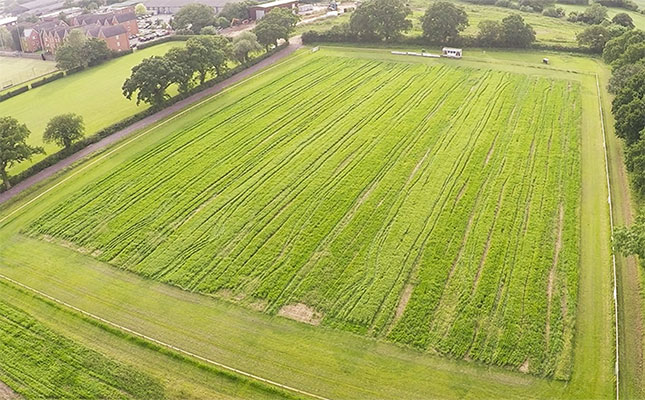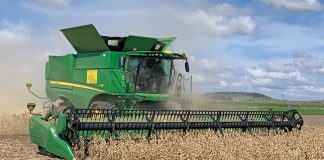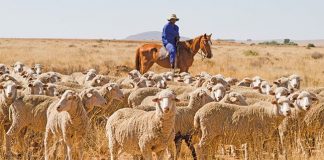
Photo: Harper Adams
The use of smaller agricultural machines can improve soil and plant health.
This has been the premise of a team of researchers from Harper Adams University and farming service company Precision Decisions in the UK.
To prove the concept, the team ran the Hands-free Hectare project, becoming the first ‘farmers’ to plant, grow and harvest a crop without human intervention; only small autonomous vehicles and drones were used.
The project started in October 2016 and ended towards the end of last year.
“There’s been a focus in recent years on making farming more precise, but the larger machines the industry is using aren’t compatible with this method of working,” says Jonathan Gill, a researcher at Harper Adams University.
“They’re also so heavy they’re damaging the land.”
According to the team, the solution lies in fleets of smaller autonomous vehicles, such as the Iseki tractor used in the project for spraying, drilling and rolling after planting. Such machines could be used to work the lands, freeing up farmers to use their time more effectively.
A Sampo combine with a 2m header was used to harvest the project’s barley crop. “If combines in the future were similar to the size of the machine we used in this project, it would also allow more precise yield maps to be created,” says Gill.
He admits that the technology cannot solve the problem of poor weather.
“Just like anywhere in the UK, we’ve had to adjust our spraying and harvest times due to rain. This is part of the reason machines have been getting so much bigger over the years – we need to complete work quickly. But we can [also] do this with multiple small machines.”
Drones were used to capture multispectral imagery to ascertain which fertilisers were needed and to collect soil samples. A drone with a grab was also used to take samples of the crop to decide when it was ready for harvesting.
Easy to use
“Although the system sounds very technical at the moment, we do hope that systems based on this concept will exist in the future,” says Kit Franklin, agricultural engineering lecturer at Harper Adams University.
“They’ll be easy enough for farmers to use by simply inputting what they require in their computer and the robotic vehicles will go off and do it.”
Martin Abell, mechatronics researcher at Precision Decisions, said the project aimed to prove that there was no technological reason a land could not be farmed robotically.
“We achieved this on an impressively low budget when compared with other projects looking at creating autonomous farming vehicles. We used readily available machinery, open-source technology and an autopilot from a drone for the navigation system.”
Joe Spencer is the mechanisation editor of Farmer’s Weekly.











